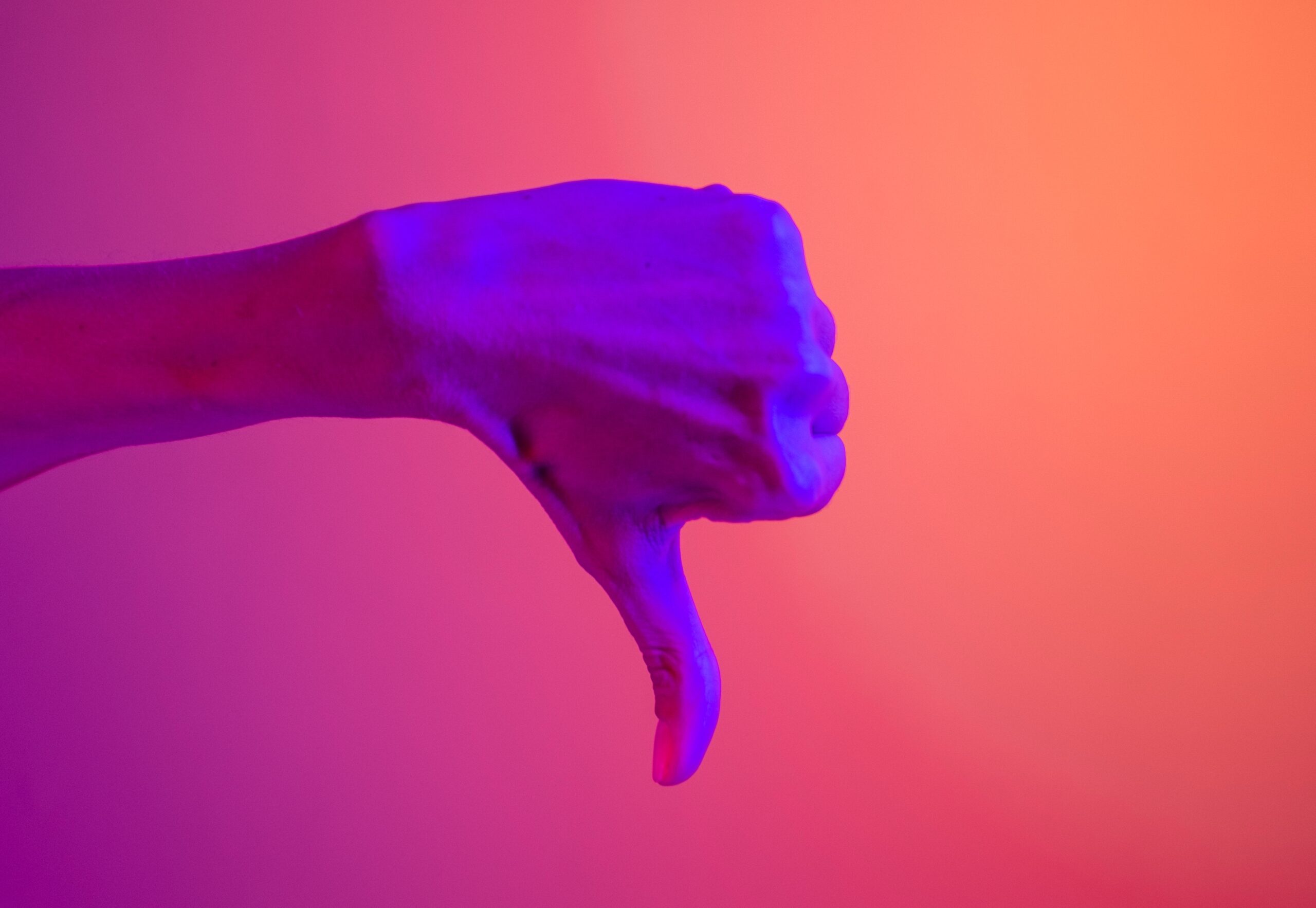Ever wonder why diets fail? How all that hard work, the sacrifice, the restriction, the missing out on your favorite foods never seems to be sustainable, and ironically always find yourself back where you started? (or even GAINED a few extra pounds!) Here’s a truth bomb: diets DO NOT work. In fact, they do more than not work – they FAIL! F-A-I-L!
Living in a culture where “thinner is better” and “thinner = healthier”, no one dares to criticize dieting. After all, this is how food industries and businesses make money. Plus, when “everyone else is doing it” it is easy to jump onto the bandwagon for fear of missing out. WARNING: Once you step onto that wagon, be prepared to fall off, hard.
Did you know 96-99% of people who lose weight on a diet gain it back within a year? For every diet one goes on, he or she gains 11 pounds. Yes, GAINS! I bet you haven’t seen these statistics in the fine print. The only thing one loses on a diet is a zest for life, self-love, social and mental freedom, willpower, time, strength (i.e. muscle loss), just to name a few. Our dieting culture makes it easy to get sucked in by quick weight loss diets, drugs, or supplement false promises. Sadly, as a society, we have lost touch with our bodies and are being blinded with what we’re truly doing to our health and metabolism by continuously playing society’s yo-yo dieting game. So why exactly do diets fail?
#1 Reason Why Diets Fail: Not Eating Enough
When we artificially restrict caloric intake (which is what characterizes most diets), our bodies go into what’s termed a “survival response.” Scientifically, this is a physiological stress response following a prolonged period of food supply cut-off. Our bodies view this as famine or a natural disaster and automatically go into survival mode. Intelligently enough, with the main goal of keeping you alive, the brain then signals the body to hold onto body weight, to store body fat, to stop building muscle, and to burn as few calories as possible. Quite the evolutionary advantage back in the day, and our primitive brain still operates in the same way today. The body thinks it is starving. It thinks it is on a desert island with very limited food supply. Its means to survive and preserve energy is to physiologically slow down calorie-burning metabolism and increase your cravings for food. This is why so many GAIN weight after dieting. The body experiences scarcity, it was threatened, and therefore will ensure THAT doesn’t happen again so your body can put on more weight to protect itself. Isn’t this the opposite of what diets claim to do? Yep, it sure is.
Most still believe the outdated calories in calories out as the key to weight loss. If this were the golden rule we would not have an obesity crises on our hands and you’d be at your weight loss goal already. Throw this garbage out the window. This belief not only causes you to not eat ENOUGH while dieting (which flips on your survival response) but it also causes many to choose low calorie “diet foods” that are not nutrient dense and often filled chemical ingredients, just to save a calorie or two. Unfortunately, not all calories are created equal. Those low fat, sugar-free muffins you’re eating are actually increasing hunger, spiking your insulin levels, and leaving you hungry shortly after when they crash. Plus, let’s be honest, most of these foods taste not-so-great. Now your brain not satisfied, causing yes- MORE cravings. Can you see already why diets fail? Go grab that whole grain avocado and egg toast instead for that protein, healthy fats, and complex carbs your body so desperately needs and stick to REAL food. Your brain and body will thank you!

#2 Reason Why Diets Fail: Poor Eating Rhythm
Majority of diets cause many to skip meals, intentionally or not. By skipping breakfast and then having a tiny lunch as an example, the body’s natural bio-nutritional circadian rhythm gets out of whack. Yes – you have an eating circadian rhythm, just like you have a sleep circadian rhythm! Naturally, our bodies burn the most calories during mid-day hours between 12-1:30 pm. When dieting your body during the times of day it needs the MOST energy, your body slows down calorie and fat burning.
Not eating enough in the front of your day with nutrient dense foods will also increase overeating and binge eating in the evening. If this sound like you and you are eating like a little birdie throughout the day, eat real food and more of it in the first half of your day. Whether your first meal or second meal is bigger right now is irrelevant. Just focus on eating a little more and you should see a positive impact with any evening eating concerns almost immediately.
But what if you don’t feel hungry until 2pm? Changing your bio-nutritional circadian rhythm is similar to your sleep rhythm. If you want to change your natural sleep rhythm to go to bed earlier so you can wake up earlier, what do you do? You set an intention to go to bed by a certain time whether you are sleepy or not, and then you get up at the early time whether you feel like it or not. Eventually you develop the sleep/wake circadian rhythm you desire over time. The same can be applied with your bio-nutritional circadian rhythm. These are the moments you may WANT to stay intentional with eating hungry or not to simply help you develop a new, healthier bio-nutritional circadian rhythm which will over time create a new natural hunger rhythm for you.
#3 Reason Why Diets Fail: Restricting Fat Intake
Since most diets focus on calories, they frequently make you restrict your dietary fat intake. This is because fat, out of all the 3 macronutrients (i.e. carbs, protein, and fat), has the highest caloric content per gram – 9 compared to 4 for carbohydrates and proteins. Many of us equate dietary fat (i.e. fat in food) to body fat. This is FALSE! It is an old, outdated science. In fact, fats, specifically EFA’s (essential fatty acids) are vital to life. When we are too low in fat, not only do our brains become foggy, but our bodies become clinically fat deficient and thus lose the ability to lose weight. But wait, it gets even worse. Get ready to say goodbye to that Loreal model’s shiny hair, reproduction chances and instead welcome constipation, dry skin, brittle hair and nails, digestive weakness, fatigue, poor memory, mood issues, secondary amenorrhea (i.e. the cessation of a females’ menstrual cycle), need I go further? If all those are fine with you, then go ahead, grab that zero percent Greek yogurt for breakfast and skip that salad dressing. Otherwise, add back in healthy fat sources from organic olive oil, nuts, seeds, fatty fish like salmon, avocado, or ghee.

#4 Reason Why Diets Fail: Food Becomes the Enemy
Remember how I said earlier you lose joy, and social and mental freedom when on a diet? That’s because when you diet, it’s not fun and you learn to hate food. Food becomes the enemy on a daily basis. Appetite, too, becomes your nemesis and so you do anything and everything to suppress it with your thoughts and emotions. These thoughts that food is bad, hunger is bad, appetite is bad are simply biologically absurd as food is essential to life. Fighting the need and desire for food is like fighting the need for oxygen, for blood flow, to go to the bathroom. Just this reason alone is enough to explain why diets fail – could you hold off that innate urge to pee? Of course not, if you tried, your body would be pretty stressed! It’s the same when you try to suppress any aspect of appetite or desire for food.
During this ongoing battle with our appetite and denying our body its innate, primitive desire and need for food, we ONCE AGAIN expose ourselves to a physiological stress response. You become vulnerable to your BFFs increased cortisol and insulin secretion, both which signal our bodies to hold onto weight and to burn fat as slowly as possible, proving once again, why diets fail!
#5 Reason Why Diets Fail: Lack of Pleasure
If the above wasn’t enough for you to say “hasta la vista” to dieting, then I hope this final reason does the trick. Diets fail because they deprive us of pleasure. God forbid we allow ourselves to have that slice of chocolate cake. Instead we automatically do one of two things: 1) respond by punishing ourselves with more restriction because we “gave in” or we “cheated.” Or 2) Say, “What the heck! Might as well eat the entire cake!” We lose control and eat way more than we emotionally and physically need (i.e. bingeing), leaving us feeling mentally and physically sick. When pleasure is diminished and is instead replaced with self-hatred, blame, and regret, our body becomes even more hungry, more greedy. The more you deny yourself the pleasure of food and nourishment, the more readily you will go into that physiological stress response and the more weight-loss resistant you will become.
So let us all jump off that diet bandwagon and get back into real nourishment. When you cut ties with endless dieting, not only will your body find its true, NATURAL weight, but you will rekindle old ties and make friends with food, appetite, and pleasure. On the other side of restriction is physiological relaxation. On the other side of dieting is FREEDOM.
Enjoy this article? Join the movement to change the conversation around food and diet culture by sharing this post!


